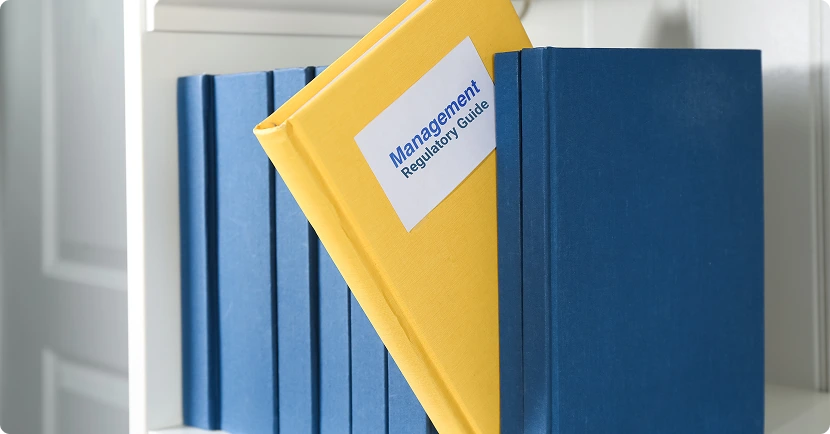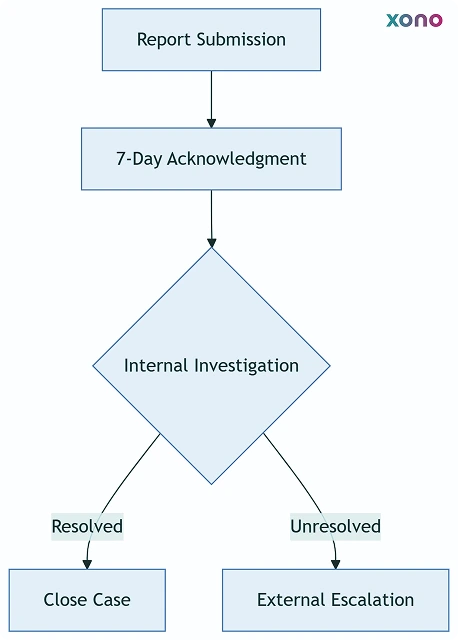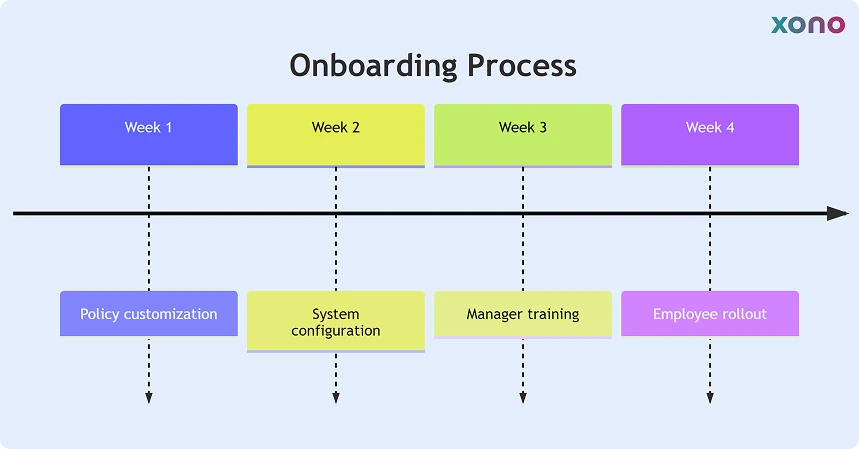Whistleblowing Regulatory Guide: Compliance, Protection & Best Practices (UK, EU & South Africa)

Whistleblowing is a critical mechanism for uncovering corporate misconduct, fraud, and unethical practices. Strong whistleblowing protections encourage employees to report wrongdoing without fear of retaliation, fostering transparency and accountability.
However, regulations differ significantly across the UK, EU, and South Africa, making compliance complex for multinational organisations. This guide provides an in-depth analysis of whistleblowing laws, key legal protections, and actionable best practices to ensure compliance while safeguarding whistleblowers.
Whistleblowing Regulations by Region
1. United Kingdom (UK) – Public Interest Disclosure Act (PIDA) 1998
The UK’s whistleblowing framework is governed by the Public Interest Disclosure Act (PIDA), incorporated into the Employment Rights Act 1996.
Who is Protected?
- Employees, workers, agency staff, and some self-employed contractors.
- Protection applies even if the whistleblower is mistaken, provided they act in good faith.
Types of Protected Disclosures
A disclosure is protected if it relates to:
- Criminal offences (e.g., fraud, bribery).
- Breaches of legal obligations (e.g., health and safety violations).
- Environmental damage.
- Miscarriages of justice.
- Cover-ups of wrongdoing.
Key Legal Protections
- No Retaliation: Employers cannot dismiss, demote, or harass whistleblowers.
- Unlimited Compensation: Whistleblowers can claim damages for unfair dismissal.
- Confidentiality: Employers must protect the whistleblower’s identity where possible.
Reporting Channels
- Internal Reporting: Preferred route (e.g., via managers, HR, or dedicated whistleblowing hotlines).
- External Reporting: To regulators (e.g., FCA, HMRC) or prescribed bodies.
- Public Disclosure: In extreme cases (e.g., media), if other channels fail.
Best Practices for Employers
- Implement a Whistleblowing Policy: Clearly define procedures and protections.
- Train Managers: Ensure they handle disclosures appropriately.
- Use Secure Reporting Tools: Anonymous whistleblowing systems (e.g., Xono’s compliance solutions).
- Monitor & Review: Regularly assess policy effectiveness.
2. European Union (EU) – Whistleblower Protection Directive (2019/1937)
The EU Whistleblower Directive establishes minimum protections across member states, requiring businesses to implement secure reporting mechanisms.
Who Must Comply?
- Companies with 50+ employees (or fewer in high-risk sectors like finance).
- Public sector entities and large municipalities.
Key Requirements
- Mandatory Internal Reporting Channels: Secure, confidential systems for employees to report concerns.
- External Reporting Options: If internal channels fail, whistleblowers can report to authorities.
- Protection Against Retaliation: No dismissal, discrimination, or intimidation.
- Feedback Within 3 Months: Employers must acknowledge and follow up on reports.
Best Practices for Compliance
- Adopt a Digital Whistleblowing System: Ensures anonymity and GDPR compliance.
- Appoint an Independent Investigator: Avoid conflicts of interest.
- Document All Reports: Maintain records for audits and legal defense.
Country-Specific Variations
- Germany: Expanded protections under the HinSchG (Whistleblower Protection Act).
- France: Requires internal reporting systems for companies with 50+ employees.
- Netherlands: Strong protections under the House for Whistleblowers Act.
3. South Africa – Protected Disclosures Act (PDA) & Companies Act
South Africa’s whistleblowing laws aim to combat corruption and corporate fraud, particularly following high-profile scandals.
Key Legislation
- Protected Disclosures Act (PDA) 2000: Protects whistleblowers in both public and private sectors.
- Companies Act 2008: Requires businesses to establish whistleblowing procedures.
- King IV Code on Corporate Governance: Encourages ethical business conduct.
Who is Protected?
- Employees, independent contractors, and suppliers.
- Protection applies even if the report is made anonymously.
Legal Protections
- No Victimisation: Employers cannot dismiss or penalise whistleblowers.
- Confidentiality: Employers must protect identities where possible.
- Legal Recourse: Whistleblowers can sue for damages if retaliated against.
Reporting Channels
- Internal Reporting: Via company whistleblowing policies.
- External Reporting: To the Public Protector, Auditor-General, or law enforcement.
- Anonymous Hotlines: Many companies use third-party services for impartiality.
Best Practices for Businesses
- Promote a Speak-Up Culture: Encourage transparency without fear.
- Use Independent Hotlines: Third-party services reduce bias.
- Regular Training: Educate employees on whistleblowing rights.
Advanced Best Practices
Every compliant whistleblowing policy must include these four core components.
1. Scope: What Can Be Reported
Best Practice: Provide employees with concrete examples to eliminate ambiguity:
- Financial misconduct: Accounting fraud, bribery, money laundering.
- Workplace violations: Harassment, discrimination, safety breaches.
- Regulatory non-compliance: GDPR violations, environmental breaches.
Why it matters: A 2023 EU study found policies with clear examples reduced "frivolous reports" by 62%
2. Process: The Reporting Journey
Visualise the workflow:

Key details to include
- Accepted channels (webform, hotline, in-person).
- Expected response timelines.
- Investigation methodology.
3. Protections: Anti-Retaliation Safeguards
Legal requirements by region:
| Region | Minimum Protection Standard |
|---|---|
| EU | No dismissal, demotion, or harassment |
| UK | Compensation for detrimental treatment |
| SA | Criminal penalties for retaliation |
Policy language example:
4. External Options: When to Go Beyond Internal Channels
List prescribed bodies:
- EU: National competent authorities (e.g., BaFin in Germany).
- UK: FCA, HSE, CMA based on violation type.
- SA: Public Protector, SAHRC, Auditor-General.
How to Implement an Effective Whistleblowing Policy
Step 1: Develop a Clear Policy
- Define reportable misconduct (fraud, corruption, harassment).
- Outline reporting procedures (internal, external, anonymous).
Step 2: Ensure Confidentiality & Security
- Use encrypted whistleblowing platforms (e.g., Xono’s compliance tools).
- Restrict access to sensitive reports.
Step 3: Train Employees & Management
- Educate staff on whistleblowing rights.
- Train HR and managers on handling disclosures.
Step 4: Monitor & Improve Compliance
- Track whistleblowing cases and resolutions.
- Regularly update policies based on regulatory changes.

Whistleblowing laws in the UK, EU, and South Africa are evolving to strengthen protections and encourage ethical business practices. Companies must stay compliant by implementing secure reporting mechanisms, protecting whistleblowers, and fostering a culture of accountability.
See how Xono’s whistleblowing platform helps you
- Meet all EU/UK/SA requirements in <30 days
- Reduce compliance risk with automated workflows
- Protect whistleblowers via encrypted, anonymous reporting